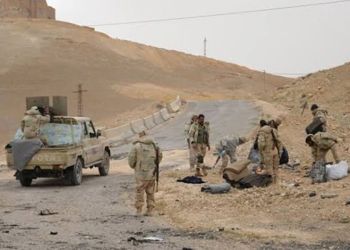This post is also available in:
![]() العربية
العربية
The article’s picture is expressive
Daesh has used a strong and bold policy in regard to claiming responsibility for attacks to recruit young men and intimidate opponents, but recent reports reveal internal overlaps and disagreements that may cast a shadow over the course of this organization.
In a new report, the organization announced its attacks in Syria through the Telegram application, but some attacks were not previously announced, specifically in the Syrian Badia and Daraa.
These disputes shed light on internal tensions within the organization, as disagreement appears between media leaders and military commanders in the desert and Daraa, regarding the responsibility for the attacks.
Some branches in al-Hasakah, Raqqa, and Deir Ezzor work in harmony with the organization’s platforms to spread the attacks, while other branches refuse to publish and adopt the attacks due to security concerns. These disagreements lead to divergent opinions and conflicts and exacerbate division.
These disputes have significant impacts on ISIS in the future, and the disparity in adopting attacks may impede the organization’s promotional efforts, and undermine its ability to create terror and panic among its opponents. On the other hand, disagreement may increase internal divisions and negatively affect the organizational structure and coordination capacity between the different branches.
If these disagreements persist, they could have major implications for the future of Daesh. It is possible that these disagreements will weaken his ability to achieve his goals and keep him alive, and will lead to reducing his influence on the international scene. This leads to the dispersion of the organization, the undermining of its unity, and the creation of sub-organizations from the main ones.
In general, these differences within Daesh show that the organization is facing new internal challenges that increase its weakness more than ever before, and burden it with its current problems of lack of manpower and financial resources, the collapse of its first-rank leaders, and the succession of three caliphs in one year without stability, so that the future remains vague for Daesh and the effects of internal disputes on its path.












